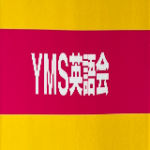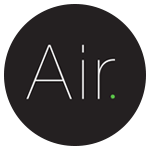
It is not uncommon to be nervous during an interview, particularly for newcomers to Japan in a new line of work like teaching English. Here is some advice directly from the hiring managers who use Jobsinjapan.com when I asked about how job seekers can be more successful during interviews.
I will skip over the obvious ones like arriving late or too early, no eye contact, improper attire, criticizing previous employers, etc., and let you know when you may be talking yourself out of a job.
There are two main areas here, when to just shut up and how to ask questions. During an interview, you will likely be asked a number of open-ended questions. Some examples you would expect are as follows:
- Tell me about yourself?
- What interested you in coming to Japan?
- Why are you interested in our company / this job?
- What are your strengths, weaknesses, personal achievement, etc?
- Tell me about a time when you resolved conflict, overcame obstacles, etc?
- Do you have any questions for me?
After getting one of these questions, do not tell the interviewer your life story. I suggest that you say something to the effect of “Let me give you the short version and I’d be happy to go into details on any aspect that you would like to know more about.” Do not ramble on and on.
This nervousness can be a cause of rambling, so there needs to be a conscious preplanned effort to control it. You will also want to avoid going off on tangents from the original question posed by the interviewer. Silence, which some interviewers may even use as an intentional technique, can be another cause. If you have answered the question posed to you, do not allow any momentary silence in the room to be a trigger to fill the void with additional talking.
If someone asked me “What kind of sales experience do you have?” I could spend three hours talking about it as I am passionate about the subject and my career. However, the interviewer is not going to want to listen that long, so I would just spend a couple minutes to hit briefly on the types of companies, products and prices of what I had sold, and then ask if there were any areas where I could offer more details or clarify. This keeps me from rambling and gives the impression of a well thought-out answer. If I were to give a long-winded explanation, which far exceeded what the interviewer wanted to know, it would not benefit me at all.
As mentioned in a previous article, you do not want to be criticizing previous employers. Such conduct will have the same effect as criticizing a previous girlfriend/boyfriend on a date. Such negativity turns people off and begins to make them wonder that real source of the problem could be you.
It is important to keep your comments positive and not let any concerns about possible discrimination, whether perceived or real, enter into the conversation. Negativity is not good in any forum, and if you are wearing such concerns out on your sleeve in the interview, the employer may worry that such topics could become sources for complaints during the employment.
Do you have any questions for me?
In many cases you will be asked, “Do you have any questions for me?” The interviewer asks you this for two reasons, to answer any questions that you may have and to gauge your intelligence and interest.
Employment is a two-way street, and you have every right to ask questions to determine if you want to work at that company. Interviewers do not like to be interrogated, so do not ask how long this person has been in their role or anything of a personal nature. Also avoid anything that the interviewer obviously cannot or will not want to answer.
Some interviews may seem to go very well with an immediate good rapport, which can lead to light-hearted topics, humor, current events, etc. It will be natural to respond to any such conversation initiated by the interviewer, but again you should take care to avoid tangents and carefully guard any off-topic responses.
Avoid the selfish questions for the second or third interview. Do not ask about raises, bonuses, vacation days, and other benefits until it looks like you are close to landing the job. Or if the situation appears to be one where there will only be one interview after which a hiring decision will be made, these questions should come at the end of the interview.
The takeaway here is to make a concerted effort to neatly package responses that address specific questions, and to expand on these if asked. Attempt to always maintain a positive disposition in your responses while avoiding negativity. Then, save your questions until the end of the process or to the point you are asked to make them.















